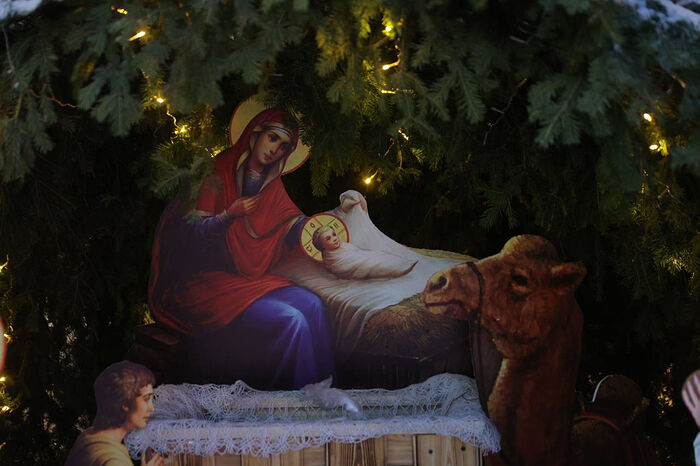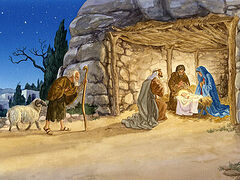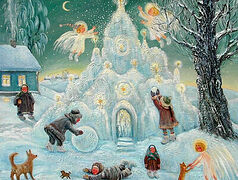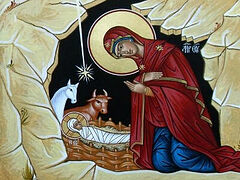 Photo: ekaterinburg-eparhia.ru
Photo: ekaterinburg-eparhia.ru
I greet you, dear ones in Christ, with the days of eternal joy, the feasts of Christmas and Theophany, and with the coming New Year. May the Lord grant you all to meet and spend the holidays for the benefit of your salvation, in joy and in peace with all.
Christ is born, glorify Him!
Once again, by the grace of God, this year we are celebrating the great feast of the Nativity of Christ. The hymnist of the Orthodox Church, St. Cosmas of Maiuma, in the first verse of his Nativity canon, sings the following words of the triumph of the coming of Christ God to earth:
Christ is born, give ye glory
Christ comes from heaven, meet ye Him.
Christ is on earth, be ye exalted.
It is noteworthy that in this hymn the great poet of the Church glorifies the event of the Nativity of Christ not in the past tense, but in the present: “Christ is born.” Not only “was born,” but also “is born.”
Where, now, after nineteen centuries have passed since the marvelous and wondrous Nativity in the cave of Bethlehem, is Christ “born?” And how can He be born in our godless time, when Christian nations are not only falling away from the Christ who called them, but also rise up to fight with Him and against Him?
The Holy Church resolves this perplexity with the words of the great St. John Chrysostom in the prayers recited before receiving the holy Body and Blood of Christ: “Lord, as it seemed good unto Thee to lie in the cavern and in the manger of dumb beasts, so also now graciously vouchsafe to lie in the manger of my dumb soul, and to enter into my defiled body” (second Prayer).
The human heart, weak, sinful, but longing for salvation, is the new manger of Bethlehem on which Christ lays, as soon as the repentant soul cries out to Him in contrition. And this innermost birth of Christ in the human heart and the birth of a new man is ready to be accomplished every moment of his life. The whole being of man is that new Bethlehem, the new city of King David, to which the King of Kings, our Lord Jesus Christ, directs His steps in order to “pass into the mouth and into all parts” of human defiled flesh, to purify and “sanctify soul and body, mind and heart, belly and reins” (from the Prayer of St. John Chrysostom).
Let us leave behind despondency, dear ones, and celebrate the day of Christ's Nativity in spiritual joy: “Christ is on earth, be ye exalted,” the great hymnist rejoices with the whole Church.
If, dear ones, during the Christmas fast, we could not prepare our manger, our hearts, by prayer to receive the newborn Child of God, we will cry out to Him from the depths of our soul on the very day of the feast of His radiant Nativity, and He, Who is coming to be born and ready to suffer for our salvation, will not pass by our troubled hearts.
If we, in our dispersion, are deprived of communication with our dear relatives and friends, remember that on Christmas day “Heaven and earth rejoice”, and therefore, in the midst of the general rejoicing a place is prepared for everyone. In this rejoicing our hearts are united with those who are distant from us by seas and oceans, and with those whom the Lord has called to Himself.
If anyone is deprived of the splendor of the temple, if anyone is forced to celebrate the bright feast in poverty, “in catacombs and caves,” may he be comforted by the thought that Christ God was born in a poor manger, transforming it into Heaven for us.
“A strange and wonderful mystery do I see: the cave is heaven; the Virgin, the throne of the cherubim; the manger a room, in which Christ, the God whom nothing can contain, is laid. Him do we praise and magnify.” (Irmos of the ninth ode of the matins service for Nativity)



